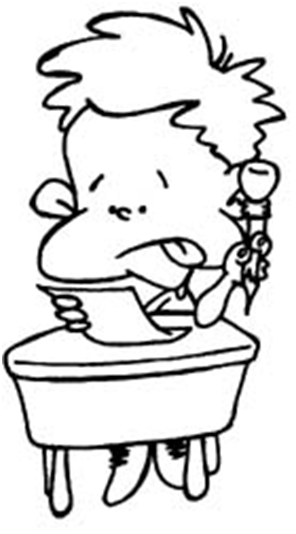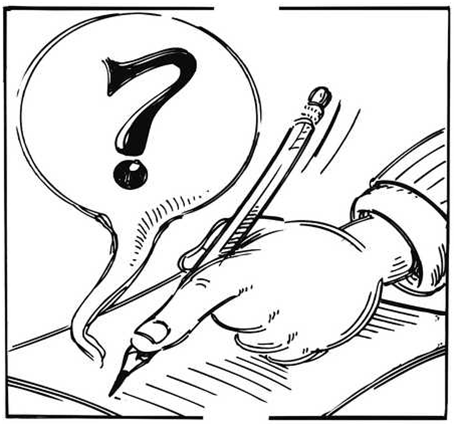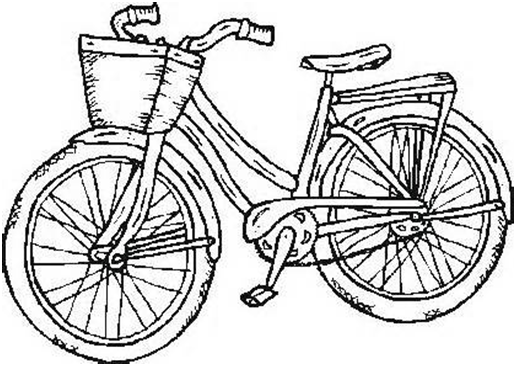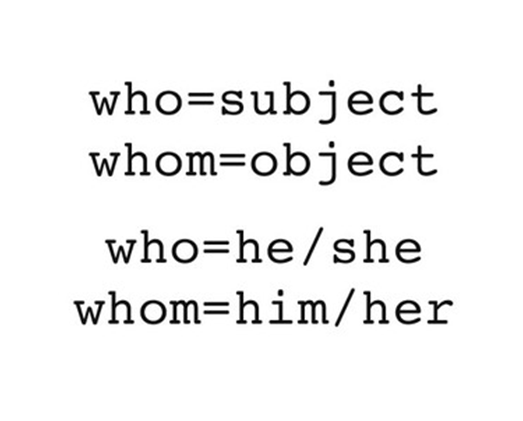Test your English Skills
 Learning English takes a lot of effort, right. We know you all have been learning and practicing English diligently. Hopefully, our blogs, tips, and guidelines are proving to be helpful.
Learning English takes a lot of effort, right. We know you all have been learning and practicing English diligently. Hopefully, our blogs, tips, and guidelines are proving to be helpful.
The best way to learn English is to practice, practice and practice. Practice speaking whenever you are in the company of someone who speaks fluent English. Practice reading in all of your free time, practice listening, by listening to English news or watching English TV serials and movies.
Surely, you must have gained a certain amount of mastery over the English language. So let us put that to test. Here is a simple online English-speaking test for you all to take. All you have to do is pick the right answer from the options given under each question.
1. Suresh ___ very tall.
a) is
b) are
c) has
2. She ___ like football very much.
a) don't
b) doesn't
c) hasn't
3. How ___ does one lesson cost?
a) Many
b) much
c) is
4. There ___ a big playground next to my house.
a) is
b) are
c) have
5. I ___ agree with you.
a) doesn't
b) haven't
c) don't
6. Nisha can't .... tennis. She's broken her arm.
a) to play
b) playing
c) play

7. ___ some more tea?
a) Would you like
b) Do you like
c) You'd like
8. Last week we ___ to Worli.
a) go
b) went
c) goes
9. I ___ the film we saw at the cinema on Wednesday.
a) doesn't like
b) haven't liked
c) didn't like
10. Manisha ___ in Europe for her holiday last year.
a) was
b) were
c) is
11. My mother ___ never been to a cricket match.
a) hadn't
b) haven't
c) has
12. Jiya ___her new mobile phone.
a) is losing
b) loses
c) has lost
13. ___ ever seen a comet?
a) Did you
b) Have you
c) Do you
14. If I were rich, I ___ buy a huge cart.
a) will
b) shall
c) would
15. They ___ pass their exam if they studied hard.
a) would
b) will
c) did
16. I wish I ___ play a musical instrument.
a) can
b) could
c) should
17. When Girish arrived at the house, Hema ___.
a) already left
b) has already left
c) had already left
18. If I ___ on holiday to Kerala, I wouldn't have met Disha.
a) didn't go
b) haven't gone
c) hadn't gone
19. By the time you get this letter I ___.
a) will have left
b) am going to leave
c) would leave
20. A: What are you doing tonight?
B: I'm not sure, I ___ to the cinema.
a) will go
b) would go
c) might go
Taking an English test online is an easy and fast way of finding out your progress. There are many online English-speaking tests available that will help you gauge your English speaking level and also give you tips on improving on your mistakes. eAgetutor is one such portal where you can take an English test online and put your skills to set.
(Answers: 1. a, 2. b, 3. b, 4. a, 5. c, 6. c, 7. a, 8. b, 9. c. 10. a, 11. c, 12. c, 13. b, 14. c, 15. a, 16. b, 17. c, 18. c, 19. a, 20. c).
About eAgeTutoring:
eAgeTutor.com is the premier online tutoring provider. Our world class faculty and ace communication experts from around the globe presents you an online spoken English programme that helps you improve in an all round manner. The assignments and tasks, based on a well researched content developed by subject matter and industry experts, can certainly fetch the most desired results for improving spoken English skills. Overcoming limitation is just a click away in this age of effective and advance communication technology.
For further information on our online English speaking course, please visit www.eagetutor.com.
- By Monika Agarwal
Related topics:
1. Gear up! It's Test Time
2. English Exercises for Beginners
3. How to Avoid Common Grammatical Mistakes?
4. How to learn English Online?
The Sounds of Syllables
Hello people, we are back with a yet new blog to take you further in your quest of learning English. We have given you tips on learning grammar, using tenses, how to form sentences, pronounce words and ideas on conversations as well.
Now that you are adept with the basics, it is time to learn the finer nuances of the English language.
As we have already enunciated a number of times, English, besides being funny, is also a confusing language. Certain words are spelled one way, and pronounced the other. The spellings are sometimes misguiding, and many times, a whole letter is rendered useless by making it silent in the word! Then there are words in which the letters used are given an altogether different sound! Confused? Let us make it clear with the following examples: • Cycle: In this word, the letter 'C' appears twice, and in both the instances, it carries a different sound! The first 'C' has the sound of 'S', while the second 'C' sounds like 'K'. The word 'cycle' is a perfect example of the various sounds that a single, or multiple, letter can carry. Hence, deducing the real sound of 'C' is quite difficult, given that a single word carries two different sounds of the letter. There are many other words that use the two different sounds of 'C'. Words like Carom, canyon, cattle, crop have 'K' kind of sound. While words like cyst, chance, cease, imply a 'S' kind of sound. Can you think of more such words?
• Cycle: In this word, the letter 'C' appears twice, and in both the instances, it carries a different sound! The first 'C' has the sound of 'S', while the second 'C' sounds like 'K'. The word 'cycle' is a perfect example of the various sounds that a single, or multiple, letter can carry. Hence, deducing the real sound of 'C' is quite difficult, given that a single word carries two different sounds of the letter. There are many other words that use the two different sounds of 'C'. Words like Carom, canyon, cattle, crop have 'K' kind of sound. While words like cyst, chance, cease, imply a 'S' kind of sound. Can you think of more such words?
• Enough: The sound of 'G' is how you pronounce it in 'goat', 'geese', or 'ground'. The sound of 'H' is the way you say it in 'horse', 'house', 'hat'. However, when these two words are merged together, they produce the sound similar to 'F', as in 'enough'. The English language is filled with such words where 'gh' produces the sound of 'F'. Cough, tough, laugh, are some good examples. However, many times, these letters together are used silently. Pronounce the word night, thigh, through, weigh – can you identify any sound associated with 'gh'?
• Phone: Many people spell 'phone' as 'fone', especially in chats or other casual conversations. Given the sound of 'PH' in this word, it is no wonder that people get confused and actually use an 'F'. Other similar examples would be 'Philip', 'Phosphorous', 'physics', and 'phantom'.
The English language is abundant with such amusing and unique words, and it is a fun activity to discover and learn new ones. For people wondering, 'How to improve your English?' the answer is this – the ways of learning English are many, each more creative than the other. All you have to do is set a goal, focus, and learn what works for you. There are many online spoken English classes like eAgeTutor, that help the students learn English, polish their pronunciation and learn various idioms and phrases.
English fluency is a requisite to excel in today's competitive world, and to develop that skill you need the support of a good online English learning course.
How to Improve Your English Writing Skills
The internet is often credited for making the world a global village, for bringing people across various countries, languages and ethnicity, together and inculcating a sense of sharing and oneness among all. All that is very well, but we cannot owe it all to the internet alone. Without English, how far do you reckon, internet could have reached. Whether it is writing programs, creating website and online platforms to the simplest form of online communication, chatting – English has played a pivotal role in the widespread and mass acceptance of the internet media.
Now, why are we stressing on the role of the internet when the topic of our discussion is developing writing skills? For that, answer this question: How many of us literally 'write' with a pen and paper? Writing, largely, is done online nowadays. Whether it is blogging, posting your thoughts or shooting an email, writing plays a key role in everything.
Many intellectuals and English enthusiasts have been blaming the very internet for spoiling the English language. And that seems to be true to a certain extent! People have developed a unique 'chat lingo' to save themselves from writing common phrases. 'You' became 'u', 'we' became 'v', 'there' is now written 'der' and 'gr8' stands for 'great'. Not just that, 'brb', 'ttyl' and 'rofl' have become commonplace too (they stand for 'be right back', 'talk to you later' and 'rolling on the floor laughing' in that particular order)!
This is the reason why it has become difficult for amateur English learners to know what correct English is and what is slang! It is at such times that you need the tips we are going to share. Yes, whenever there is an English language emergency, we will always be there to rescue you!
• Read: Anything and everything that you read online does not amount for real reading. The internet is jam packed with myriad blogs – on possibly every topic under the sun. But who will account for the language's accuracy? When we say read, we mean reading books and magazines. Publications have a strict discipline and a code to follow when it comes to language. Not only is the language impeccable, but everything is done with great detailing - the spellings, grammar, sentence formation, etc. After all articles and magazine reports are old age (and hands down, the original) blogging!
• D-I-Y dictionary: Why take the pain when you can buy a dictionary or consult an online dictionary easily, you will wonder. Have you seen the size of a dictionary, even the pocket one? It is so many pages of words with their words, but how many words do you actually need to refer? Building your own dictionary helps, as you know exactly what word or phrase is noted in your dictionary. And why just words? It is your dictionary, you can note down phrases, jargon, writing tips and amusing quotes, etc. Anything that you fancy and can come handy in the future.
• Get your work checked: Any time you write something, you are sure to think it is perfect, as you have given it your best. However, nothing is ever foolproof, and that is why it is important to get your work checked, preferably someone who is better at English. Another important tip is to take the criticism constructively and use your mistakes as an aid for improving your English writing skills.
If you are serious about improving and developing your written and spoken English skills, your best option is to join any of the numerous online language courses available. Online tutors like eAge are useful and offer amazing results!
Who or Whom: Learn the Right Usage with Examples
As an online English speaking tutor, we are constantly flooded with the who vs whom debate. A lot of us often get confused which is the right word to use – who or whom.
Who and whom both are pronouns but 'who' is a subjective pronoun and 'whom' is an objective case. The same goes for 'whoever' and 'whomever'. The difference is that whom is the objective form of who.
In short, 'who' is a subject to a verb whereas a 'whom' is always an object in a sentence. Having said this, it is difficult to use the principle in practical terms. Therefore, let us look at some real examples to understand the proper usage of who and whom.
A woman was buying fruits in the market?
Who was buying fruits in the market? She was buying fruits in the market.
Now, observe closely, the answer is 'She', therefore going by the above formula, 'who' is right. However, if the answer would have been 'her' than 'whom' would have been the right choice.
For instance: The fruit vendor was talking to the woman.
To whom was the fruit vendor talking? Her. Therefore, whom is correct.
The easiest and simplest formula you need to remember is:
If you are getting these answers, you know what to use.
Let's look at some more examples
• Who was calling me?
Answer: He was.
• From whom did you get my number?
Answer: I got it from him.
So far, we have taught you two simple ways to identify when to use who and whom. Now, let's look at another way.
This is our technique to ensure we never make mistakes. Turn the sentence around and replace the whom or who with him or he, respectively.
For instance:
Who/whom do you think is the best writer?
Here's a way to figure it out. Turn the sentence around and replace the who/whom with he/him.
Do you think he is the best writer?
Do you think him is the best writer?
Since, he is correct, use who.
Let's look at another example.
He wrote that article.
Him wrote that article.
Again, he is correct.
So, who would be the proper choice.
See. How simple it is to get the proper usage of who and whom.
There are several language courses online that teaches you the right technique in terms of proper English usage. You can learn English online with us and get to know more such interesting ways to improve your vocabulary and English speaking skills. Don't you think it is much simpler to remember grammar this way. This is our unique way of teaching English.




